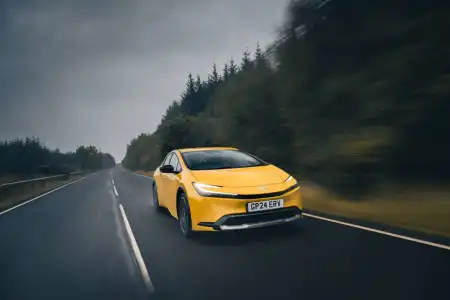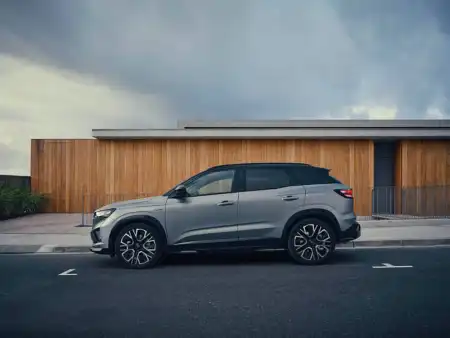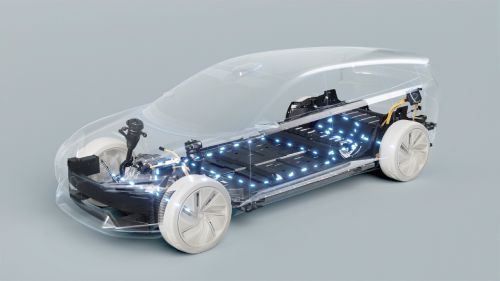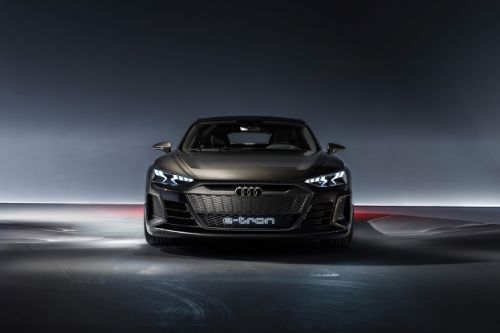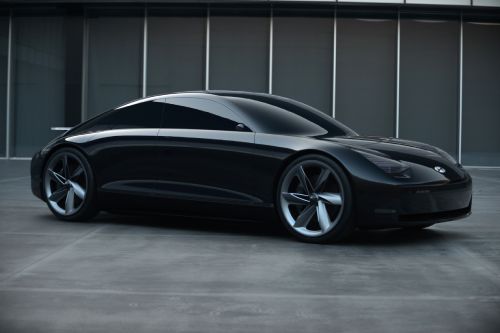
Travel the distance. Explore Hybrid Cars Today
Want to know more about hybrid cars? Whether you’re looking for the best hybrid cars, self charging hybrids, or you just want to know ‘what is a hybrid car’ - then you’re in the right place!
Why should I consider buying a hybrid?

If you’re interested in plug-in hybrids or expecting to move to a more sustainable vehicle in the future, here’s a few reasons you might want to:
You’ll save money on fuel
Hybrid vehicles are more efficient than their like-for-like hybrid counterparts. This translates to less stopping at fuel stations, at least 20% off your fuel bill, as well as higher miles per gallon than conventional combustion vehicles.
You’ll pay less tax and hold more vehicle value
There’s a lower rate of road tax for ‘Alternative fuel vehicles’, so you can expect to save at least £10 per year in road tax. Company car drivers can save thousands of pounds per year via the ‘Benefit in Kind’ scheme. With hybrid popularity increasing, the demand remains solid and resale value of Hybrid vehicles is strong across all segments.
You’ll help to protect the environment
Hybrid engines are cleaner and greener, especially if they come with an electric-only mode. You’ll contribute to cleaner air for everyone and have less effect on the noise pollution.
No Range Anxiety or Driveway needed
If like others, you’re apprehensive about relying on the electric charging point infrastructure, look no further. Hybrid vehicles can cover hundreds of miles before needing to refuel and you can always rely on the engine if it’s not possible to charge.
Not all of us have driveways for EV charging ports. Luckily, hybrids don't need to be plugged in thanks to regenerative braking and self-charging systems. Their smaller batteries also charge faster on the public charging network.
Still not ready to buy a Hybrid? You can Offset your carbon emissions online today for peace of mind using our Carbon Offset Calculator.
Frequently Asked Questions
Entering the world of hybrid motoring can be quite daunting as, for many of us, this is unchartered territory. That’s where we can help. We’ve answered the most commonly asked questions in this quick FAQs section...
Yes, you can Offset your carbon emissions online today for peace of mind using our Carbon Offset Calculator.
The current cheapest Hybrid car on the market is the Toyota Yaris Hybrid. This is a self-charging hybrid that starts from £19,915. If you are looking for a Plug-In Hybrid vehicle then the Hyundai IONIQ PHEV is one of the most affordable models on sale at the moment, with a starting price of £30,195.
As a rough guide, self-charging hybrids cost between £20,000 and £30,000, whereas Plug-In Hybrid models cost between £30,000 and 40,000. This is a ballpark figure as premium and luxury car makers will charge more, and often larger vehicles, such as SUVs, will be more expensive too.
Until October 2021, hybrid cars are currently exempt from the London Congestion Charge if they meet certain criteria. Firstly the vehicle must have CO2 emissions lower than 70g/km. Secondly, the car must be able to drive at least 20 miles while emitting zero emissions (in electric-only mode). So while this does include a vast number of hybrid cars, it’s worth noting that ‘mild hybrids’ do not meet the necessary criteria, as no ‘mild hybrids’ are capable of covering such distance without using their internal combustion engine.
It is also important to know that the restrictions will be tightened in October 2021 whereby only fully electric cars are exempt from the congestion charge.
Most hybrid car batteries will come with either an 8 year or 10-year warranty supplied by the manufacturer and are often warranted up to 100,00o miles. This does not mean that the batteries cannot do more than 100,000 miles, however, like regular petrol or diesel engines, a hybrid batteries lifespan will depend on how well u it is looked after and how frequently it is serviced.
Self-charging hybrid cars do not need to be charged via a charging cable as the onboard battery is recharged through regenerative braking and from the power of the combustion engine. This means that there are no obvious changes between owning a self-charging hybrid and a regular petrol or diesel car.
Plug-In Hybrid cars also do not need to be charged in order for the car to move, as they can be powered by the onboard combustion engine, however, in order to achieve the desired efficiency levels that Plug-In Hybrid cars can offer, the battery will need to be charged frequently to reduce fuel consumption.
It is thought that hybrid cars can be cheaper to fuel by around 30% per mile, depending on the make, model and the manner in which they are driven. This will obviously vary widely depending on a number of factors, but by and large, hybrid cars are cheaper to run than regular petrol or diesel cars. The maintenance costs of hybrid cars don’t differ much from the costs you would expect from a non-hybrid vehicle, so the majority of the savings are made through reduced fuel costs.
Yes, although fully electric vehicles attract the most generous benefit in kind (BIK) rates, hybrid vehicles are also tax efficient. This specifically refers to Plug-In Hybrid cars which can achieve under 50g/km of CO2. For example, a BMW 330e Touring M Sport worth £40,940 is in the 11% tax bracket, whereas a comparable diesel BMW 320d falls into the 30% tax bracket.
This difference in Benefit In Kind may not sound like much but over the year this can be the difference of thousands of pounds in tax saved by choosing a hybrid vehicle over a diesel.
Yes, you can tow a caravan with a hybrid vehicle. Hybrid vehicles will all be rated on their towing capacity just like any other petrol or diesel car. This towing capacity is the maximum weight that a vehicle can safely and legally tow. Make sure you inspect a vehicles maximum towing capacity before purchasing it to ensure it meets the standards you require. You can also expect your fuel efficiency to drop dramatically depending on the weight being towed, however, this is the same when towing with regular petrol or diesel vehicles.
No - you should never tow a hybrid vehicle. A hybrid vehicle will try and regenerate energy through its regenerative braking system while being towed. This will, in turn, top up the battery, however, towing a hybrid vehicle runs the risk of overpowering the regenerative braking system and potential damaging the onboard battery or electrics.
If you own a hybrid car and need your vehicle recovering, it is strongly recommended that you use a flatbed recovery truck to move the vehicle.
Yes and no, there are some mild hybrid vehicles (or ‘MHEVs’) that are available with a manual gearbox, such as the Ford Puma, Ford Fiesta and KIA Stonic. These Mild hybrids are not able to drive on electricity alone and the electric motor is only really used to aid stops-starting and accelerating, therefore they can be sold with manual gearboxes
All other hybrid cars use automatic gearboxes. This is because the car itself knows best when to apply the extra power on offer from the hybrid powertrain and it does so in real-time, therefore the car itself needs to be in control of the gears to ensure that maximum efficiency can be delivered. When driving in electric-only mode, there would be zero benefits of a manual gearbox anyway, as the electric motor doesn’t rely on gears.
